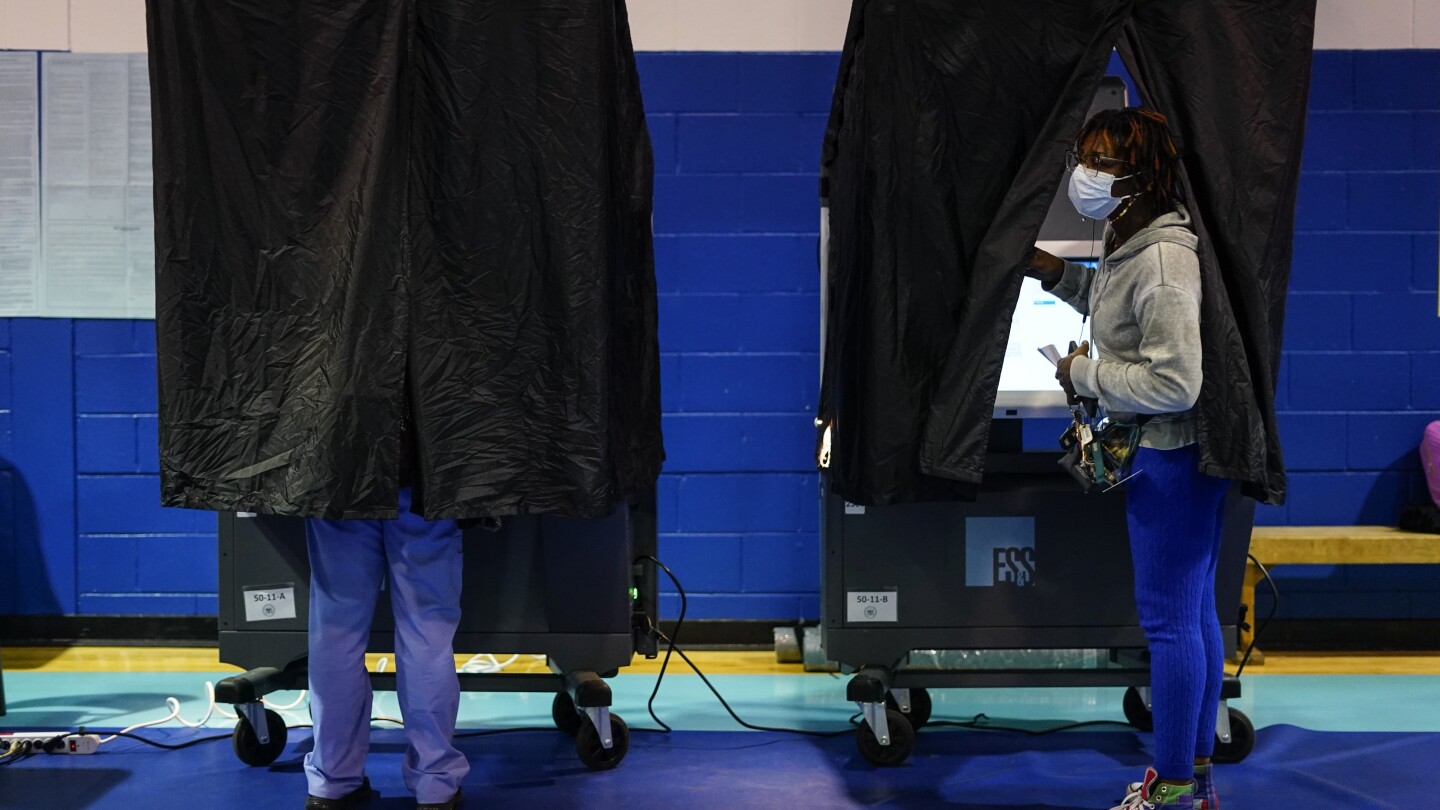Posts misrepresent voting machine error in Pennsylvania county as evidence of ‘rigged’ elections

CLAIM: Democrats cheated in Pennsylvania elections with voting machines that were rigged to flip votes.
AP’S ASSESSMENT: False. Social media users are misrepresenting an issue with machines in one county where there is no evidence of fraud, according to an election integrity expert. Instead, the machines’ maker acknowledged it made a clerical error, which resulted in devices in Northampton County printing out records that mixed up the results on two ballot measures. Despite the inaccurate printout, the voters’ actual choices were properly recorded by the machines’ backend systems, county officials said.
THE FACTS: News that machines in the eastern Pennsylvania county appeared to be “flipping” votes in Tuesday’s election was wildly misrepresented on social media, with users claiming it was proof of fraud in the Keystone State.
“BREAKING: voting machines in Pennsylvania shut down after getting caught flipping votes,” reads one post on X, formerly Twitter. “Democrats run that state and will cheat in *any* way possible. ENOUGH IS ENOUGH – Get rid of these damn rigged machines!!”
As of Wednesday, the post had received approximately 49,000 likes and more than 23,000 shares.
But the claims of cheating are baseless, and completely misconstrue what went wrong with the machines.
Voters in Northampton County were asked to decide whether two sitting judges, Pennsylvania Superior Court Judges Jack Panella, a Democrat, and Victor Stabile, a Republican, should each be retained for additional 10-year terms by marking “yes” or “no” for each candidate. Panella and Stabile were not running against each other, just vying for another term.
However, officials found that the “yes” or “no” votes for each judge appeared to have been switched on a printed summary shown to voters before they cast their ballot, Charles Dertinger, the Northampton County director of administration, said at a press conference on Tuesday. For example, if a voter marked “yes” to retain Panella and “no” on Stabile, it was reflected on the summary as “no” on Panella and “yes” on Stabile.
Voters’ actual choices were properly recorded by the machines’ backend system, meaning their votes could be tabulated accurately, Dertinger said.
“What you read and what the computer reads are two different things,” Dertinger explained at the press conference. “The computer does not read the text that is printed out.”
Elections Systems & Software, the Ohama, Nebraska-based company that provided the ExpressVoteXL machines, acknowledged it was at fault for the issue. Linda Bennett, the company’s senior vice president of customer operations, said at Tuesday’s press conference that the printed summary “reflected a clerical labeling error that was made by an ES&S employee.”
Unofficial results released by the Pennsylvania Department of State show both Panella and Stabile retaining their seats, each with a margin of hundreds of thousands of votes. Only about 70,000 votes were cast in Northampton County for those races, the results show.
The department said the printed summary glitch was isolated to these two retention elections in Northampton County and that no other races statewide were affected. A court order obtained by the county Tuesday after the problem was discovered allowed it to continue using the machines.
An election integrity expert confirmed that the problem with the machines was not indicative of anything suspicious.
“All the facts here are consistent with human error, not fraud,” Mark Lindeman, policy and strategy director at Verified Voting, wrote in an email to The Associated Press. “Anyone who actually wants to steal votes should try to do something that voters wouldn’t notice almost immediately.”
Lindeman added that although he is “confident that this error won’t affect the outcome of the election,” he sees the events as “deeply disturbing.”
“Voters should never be forced to cast ballots that literally say the opposite of what they intended in order to vote at all,” he wrote. “It’s simply unacceptable.”
Historically, Pennsylvania voters have only ever declined to retain one judge on any of the state’s three appellate courts. Justice Russell Nigro lost retention in 2005 over fallout from legislation that awarded pay raises to state lawmakers and judges.
___
Associated Press writer Michael Rubinkam in Pennsylvania contributed to this report.
___
This is part of AP’s effort to address widely shared misinformation, including work with outside companies and organizations to add factual context to misleading content that is circulating online. Learn more about fact-checking at AP.
This article has been archived for your research. The original version from Associated Press can be found here.

